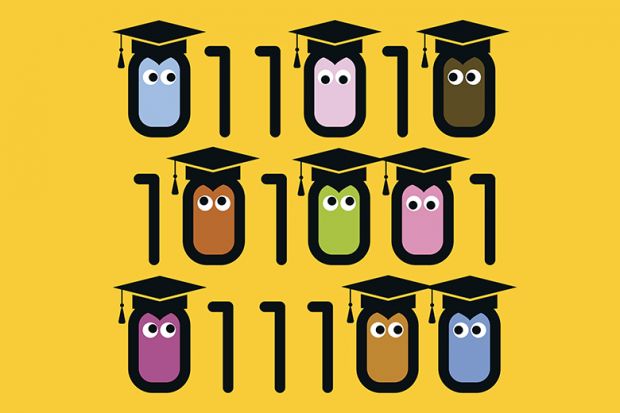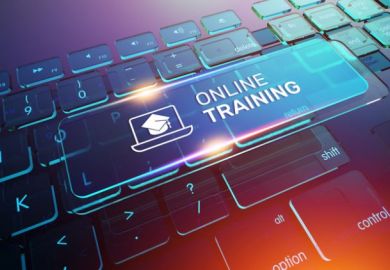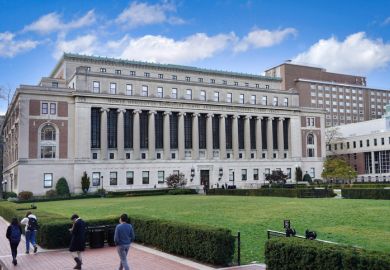A group at the University of Cambridge has recently developed a game called Go Viral! Based on inoculation theory, it teaches players how to spread misinformation through social media. But the real aim is to educate them about the dangers of misinformation. It is a very useful tool – but it barely scratches the surface of what universities need to do to vaccinate societies against the worst aspects of the digital age.
As the pandemic immerses us in the digital world faster and deeper than we could have imagined just a year ago, the ease with which falsehood can proliferate becomes ever more troubling. This is especially true for institutions whose very role centres on information that enables humanity to understand complex phenomena such as climate change – albeit often with a lot of uncertainty and an unknown residual level of ignorance.
In the digital world, the most important role of education is what Alex Beard, in his fascinating 2018 book Natural Born Learners, calls “the capacity not to be cheated”. Education needs to teach learners not only to create or discover information but also to discover what is not truthful and not caveated by truthful statements about uncertainty and ignorance.
An important aspect of this is recognising and tackling machine bias. Companies are already using AI in recruitment, yet the judgements that the algorithms make are based on the worldviews of a very narrow social stratum, consisting of graduates from a small number of highly selective universities.
Indeed, Flynn Coleman, in her 2019 book A Human Algorithm: How Artificial Intelligence is Redefining Who We Are, argues that biased and unethical information poses as big a threat to fair and objective decision-making as misinformation does. What is needed, she argues, is more public literacy about AI and more voices at the table.
Higher education is one of those tables and can help impart that literacy. But for this to work we need to open up universities to a wider diversity of students. With universities also at the technological cutting edge of digitalisation, inclusion and diversity are all the more important.
In other words, for higher education to be able to vaccinate populations against misinformation, we need to universalise access to it, so that everyone’s brains can develop their best talents, attaining the level of public information literacy necessary to minimise the spread and influence of falsehood. This is especially true when populist politicians, with bases among those excluded from higher education, build their power on ignorance.
Universal higher education should not be difficult to achieve for natural born learners. Research suggests that successful learning – achieving an information gain – triggers a rewarding dose of dopamine in our brains, just as food and sex do. So it is misinformation to say that not everyone can benefit from university. Certainly, some will take longer to master a topic, and a small minority may never do so, but that difference can be considerably narrowed with expert course design, excellent teaching and lots of feedback. Moreover, cognitive diversity creates rich social learning environments.
Yet many countries’ higher education systems are less about developing everyone’s abilities and more about human selection, creating a social division with huge consequences for those excluded from higher education. This needs to be fundamentally rethought. What is required for the digital age is not figuring out who is the best but asking what we can offer each other and how we can best work together.
Fundamentally, the higher education of the future needs to be about three things. First, learning to think. Machines are increasingly encroaching on tasks that previously needed human thought, but my colleague John Domingue, director of The Open University’s Knowledge Media Institute, predicts that, ironically, AI personal learning coaches will be able to help us learn to think in ways that machines can’t – and we may be thinking via direct brain-to-brain communication within 50 years.
Universities also need to focus on learning to do. After all, learning is doing, whether that is conducting an experiment, making an object, constructing an argument or negotiating an agreement. My colleague Monica Grady, a distinguished space scientist, tells me that we will soon have virtual reality methods whereby touch, taste and smell become as important to learning as sight and sound are.
Third, students need to learn to care. We must build compassion and values into learning, not just because it is a nice thing to do but also because learning is something that is best done together, “multiplying each other’s abilities” as Beard so well puts it.
The risk is that digitalisation kills off public universities. The speed of digital innovation is undermining a model of education that is about content learned once and for all. It is clear that learning in the digital world has to be lifelong, based more on short courses and microcredentials, with the option of stacking these into learning outcomes or occupational standards, over time and even across institutions.
There is certainly a role for the commercial platforms now offering short digital courses in high demand. But they cannot possibly become the public health system of the digital world. Only public universities can perform that role, with their quality-assured teaching backed by rigorous, properly funded research and undertaken by dedicated, independently minded professionals. They must be available to everyone, throughout their lives.
Tim Blackman is vice-chancellor of The Open University.
Register to continue
Why register?
- Registration is free and only takes a moment
- Once registered, you can read 3 articles a month
- Sign up for our newsletter
Subscribe
Or subscribe for unlimited access to:
- Unlimited access to news, views, insights & reviews
- Digital editions
- Digital access to THE’s university and college rankings analysis
Already registered or a current subscriber? Login








